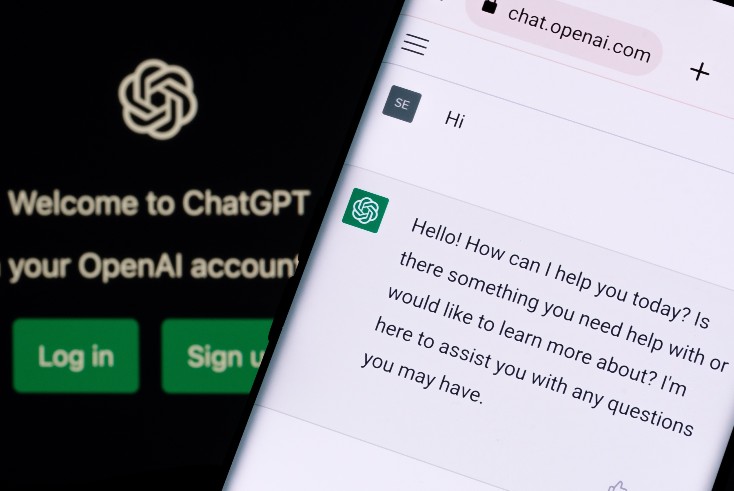OpenAI seeks to reassure publishers over SearchGPT

ChatGPT developer OpenAI is throwing its hat into the search ring.
SearchGPT, a new prototype of search features based on OpenAI’s AI models, will provide search results akin to Google’s AI Overviews. OpenAI says SearchGPT will be able to “quickly and directly” respond to questions with up-to-date information and be capable of answering follow-ups “with the shared context building with each query”.
The move marks a significant challenge to Google’s dominance in search, with both tech companies competing on who can create a better search engine based on accurate responses from large language models that can directly answer questions rather than simply linking to elsewhere on the web.
Google’s own AI Overview feature has been met with a tepid response from users. Complaints around inaccurate responses to queries, such as suggesting users try eating rocks or putting glue on pizza, went viral and caused Google to reduce the number of AI Overviews served.
In its latest earnings call, CEO Sundar Pichai suggested that user interaction with AI Overviews was encouraging but admitted the tech giant was taking “a conservative start, focused on quality”. Chief business officer Philipp Schindler added that Google has “a solid baseline here from which we can innovate”.
Google touts AI Overview strategy amid mixed financial results
Analysis: Attempts to woo publishers
In a blog post announcing the SearchGPT prototype, OpenAI attempted to assuage concerns previously raised by publishers that search led by generative AI could have a strong negative impact on referral traffic.
Google search is the main guest traffic referrer of many medium and large publications. News Media Association (NMA) CEO Owen Meredith has previously warned that AI Overviews risk discouraging users from clicking on links.
He further complained that Google’s changes to search were developed “without consultation, transparency, permission or reward for the original curators and rights holders of that information”.
OpenAI suggested it is open to working more directly with publishers as it develops SearchGPT.
“We’ve partnered with publishers to build this experience and continue to seek their feedback,” the blog post reads, adding that OpenAI is also testing a way for publishers to “manage how they appear in SearchGPT, so publishers have more choices”.
Meredith told The Media Leader, however, that while AI-driven innovation has potential benefits for consumers, there must be clear and transparently communicated rewards for publishers.
“We cannot allow the unauthorised scraping of journalistic content, particularly under the auspices of it being used for indexing for search or ‘testing’ purposes by Big Tech,” Meredith said. “When, in reality, these tech companies use the content within their controlled environment to provide answers to consumers — ultimately benefiting only themselves and not the original publishers who invest heavily in producing trusted news and information.
“The future of independent trusted journalism is at stake if the courts, regulators and government don’t get this right and ensure our strong copyright laws are properly enforced.”
Do publishers buy it?
Not all publishers have thus far got on board with OpenAI’s vision for the future of the web. The New York Times has an ongoing high-profile legal case against the tech company, as do eight other local US publications, all of which have alleged copyright infringement.
Others, such as Time, Vox Media, The Atlantic, News Corp, Axel Springer, the Financial Times and Reuters, have inked licensing deals with OpenAI to allow it access to copyrighted content for use in training its models.
Atlantic CEO Nicholas Thompson has previously said: “AI search is going to become one of the key ways that people navigate the internet and it’s crucial, in these early days, that the technology is built in a way that values, respects and protects journalism and publishers.”
Notably, OpenAI says it is committing to not throttling results from companies that opt out of deals to license their content to help train OpenAI’s large language models.
“SearchGPT is about search and is separate from training OpenAI’s generative-AI foundation models,” the blog post explains. “Sites can be surfaced in search results even if they opt out of generative-AI training.”
How Google’s AI Overviews could impact publishers’ audience development
Other publisher trade organisations have also expressed scepticism over whether Big Tech has their best interests in mind when developing products like AI search.
World Media Group CEO Jamie Credland previously warned that Google’s development of AI search confirms “the worst fears of publishers”.
However, commenting on SearchGPT, Credland stressed the importance of news brands getting more actively involved in the development of AI search models rather than sitting on the sidelines.
“The fact that more trusted news brands are partnering with OpenAI can only be a good thing for consumers, because the quality of the content going in will improve the output,” Credland told The Media Leader.
“Suzi Watford, The Washington Post‘s chief strategy officer, used a great farm-to-table analogy to describe how the Post is using AI. If you only have fresh, organic, timely, high-quality content going in direct from the newsroom, the output will be of the highest possible quality.”
For its part, OpenAI says it is “committed to a thriving ecosystem of publishers and creators”. It insists “SearchGPT is designed to help users connect with publishers by prominently citing and linking to them in searches”. Responses will deliver “clear, in-line, named attribution and links so users know where information is coming from and can quickly engage with even more results in a sidebar with source links”.



